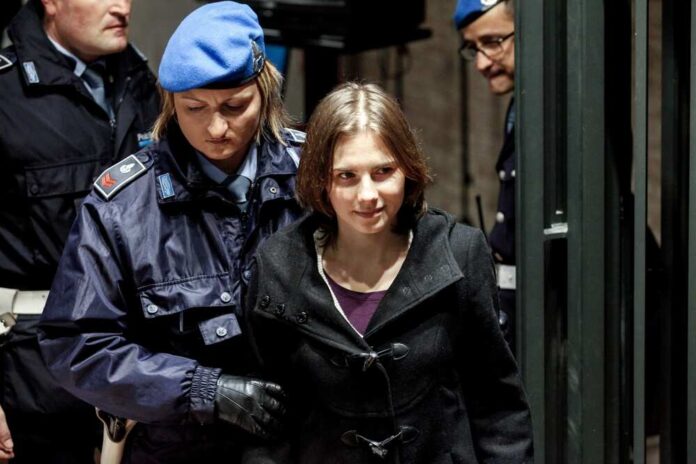
Amanda Knox, a student in her twenties, is now undergoing a second trial in Italy for defamation after her 2007 murder conviction in the case of her British roommate Meredith Kercher, who was 21 years old.
Questions about Knox’s involvement with the victim’s family and the guy she falsely accused continue to arise eight years after the highest court in Italy overturned her sentence.
The top court’s 2015 confirmation of the slander conviction for falsely accusing a Congolese bar owner of the murder is a significant factor in this. Last November, a verdict by the European Court of Human Rights overturned Knox’s conviction, stating that her rights had been violated during the all-night interrogation session without an attorney or professional translator.
Even if the second trial begins on Wednesday in Florence with a not-guilty result, Knox is still uncertain whether it will convince her critics. She worries that people will never forgive her for what occurred and will never be able to comprehend how an innocent person can be gaslighted and forced to endure what she did. The incident has left her scarred. Knox said on her podcast Labyrinths that she plans to testify, but according to her lawyer, she won’t be present in opening day court.
After Knox was convicted by a trial court and two appeals courts—one of which upheld her 26-year sentence and the other of which increased it to 28 ½ years—the Kercher family lawyer Francesco Maresca said that the high court’s dismissal did nothing to remove suspicions in his view. He referenced the fact that Knox muddledly recanted her charge against her part-time bar boss, Patrick Lumumba, and the ruling in the murder conviction of Rudy Guede, which states that the Ivorian man was not acting alone as being relevant.
The court will review Knox’s four-page handwritten statement to see whether its components support Lumumba’s defamation in her new trial, which will accept just one piece of evidence. The most damning statements, which Knox had previously signed in the wee hours of November 7, 2007, were those that included the charge; nonetheless, Italy’s highest court has declared them inadmissible.
The Innocents Project’s Italian founder, Lauria Baldassare, has said that the issue of false convictions in Italy is beginning to “create social alarm as it assumes important dimensions.” She mentioned ten instances in the last ten years where defendants were granted damages due to incorrect convictions but emphasized that they had challenges overcoming the negative perception associated with their original guilty decision.













